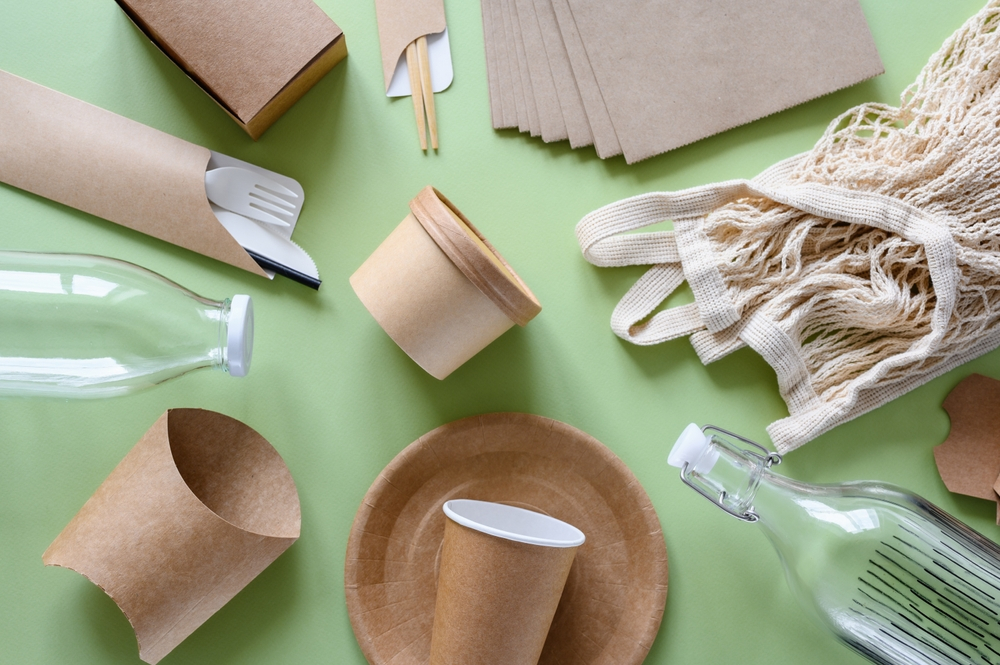
Living in a way that doesn’t harm the earth is more important than ever as environmental problems get worse. Lucky for us, there are easy and effective ways to make your daily life more eco-friendly. We’ll talk about sustainable living hacks in this guide that will not only help the environment but also make you healthy.
1. Reduce, Reuse, Recycle:
- The principles of “Reduce, Reuse, Recycle” provide a sustainable framework for minimizing environmental impact. To begin with, reducing consumption is key—opt for reusable alternatives to minimize single-use items. Invest in a durable water bottle to replace disposable ones, utilize cloth bags instead of plastic, and prioritize products with minimal packaging. By making conscious choices in their daily lives, individuals contribute to the reduction of waste and the conservation of resources.
- The second principle, “Reuse,” encourages repurposing items to extend their lifecycle. Transforming jars into storage containers, converting old t-shirts into cleaning rags, and upcycling cardboard boxes into organizers are just a few examples of how everyday items can find new purposes. This not only reduces the need for constant production but also minimizes the volume of items destined for disposal.
2. Mindful Consumption:

- Mindful consumption means shopping with care and purpose to have the least possible effect on the environment. People can help make the world a healthier place by choosing goods that are made in ways that are ethical and environmentally friendly. When you’re shopping, look for signs that say “Fair Trade,” “organic,” or “eco-friendly.” These show that the company is committed to making products in an ethical and environmentally friendly way. You might also want to look into used or thrift store shopping as an alternative to getting new things. Buying used items not only cuts down on the need for new ones but also helps the economy by giving old things another chance to be useful. This method not only reduces the damage that making new things does to the world, but it also gives one’s belongings a unique and personal touch. In the end, mindful consumption pushes people to change their minds and become more aware of how the choices they make affect the environment. Consumers can play a big part in promoting sustainability and responsible production methods by being smart about what they buy and where they buy it.
3. Energy Conservation:
- Switch to energy-efficient appliances and LED light bulbs to reduce electricity consumption.
- Unplug electronics when not in use to eliminate “phantom” energy usage.
- Consider investing in solar panels or renewable energy sources if feasible.
4. Water Conservation:
- Fix leaks promptly and install water-saving devices such as low-flow faucets and showerheads.
- Collect rainwater for watering plants and opt for a high-efficiency toilet to reduce water usage.
5. Green Transportation:

- Use public transportation, carpool, bike, or walk to reduce carbon emissions.
- Consider electric or hybrid vehicles if possible, and maintain regular maintenance to ensure optimal fuel efficiency.
6. Sustainable Eating:
- Embrace a plant-based diet or reduce meat consumption to minimize the environmental impact of livestock farming.
- Support local farmers and choose seasonal produce to reduce the carbon footprint associated with transportation.
7. Composting:
- Composting is an environmentally friendly and long-lasting way to cut down on waste. It breaks down organic materials naturally, like food scraps and other organic garbage, which are then used to make nutrient-rich soil. This soil is a natural fertiliser that can be used in farming and landscaping. It cuts down on the need for synthetic fertilisers and helps plants grow better. Composting follows the ideas of a cycle economy because it encourages resources to be used up instead of being wasted. By starting a compost bin, people can live in a way that is better for the earth and leaves less of a mark on the world.
8. Green Gardening:
- Grow your own herbs and vegetables using organic and sustainable practices.
- Choose native plants that require less water and maintenance.
9. Mindful Disposal:

- Properly dispose of electronic waste (e-waste) by recycling or donating old electronics.
- Learn about local recycling programmes and follow guidelines to ensure proper waste management.
10. Educate and Advocate:
- Promoting positive change means staying up to date on environmental problems. Share this information with others to help everyone understand how important it is to protect the environment. Join neighbourhood projects that encourage sustainability, like educational workshops or local environmental groups. Encourage eco-friendly habits at work and work with the local government to push for policies that are good for the environment. People can help shift culture towards sustainability on a larger scale by changing both small and large surroundings. By educating and speaking out, people can bring about change, inspiring others and fostering a shared desire to make the world more sustainable and eco-friendly.
Conclusion:
Adopting sustainable living practices is not only an investment in the planet’s future but also a commitment to a healthier and more mindful lifestyle. By incorporating these simple hacks into your daily routine, you contribute to a more sustainable world and inspire others to follow suit. Together, small actions can lead to significant positive changes for our environment in 2024 and beyond.


